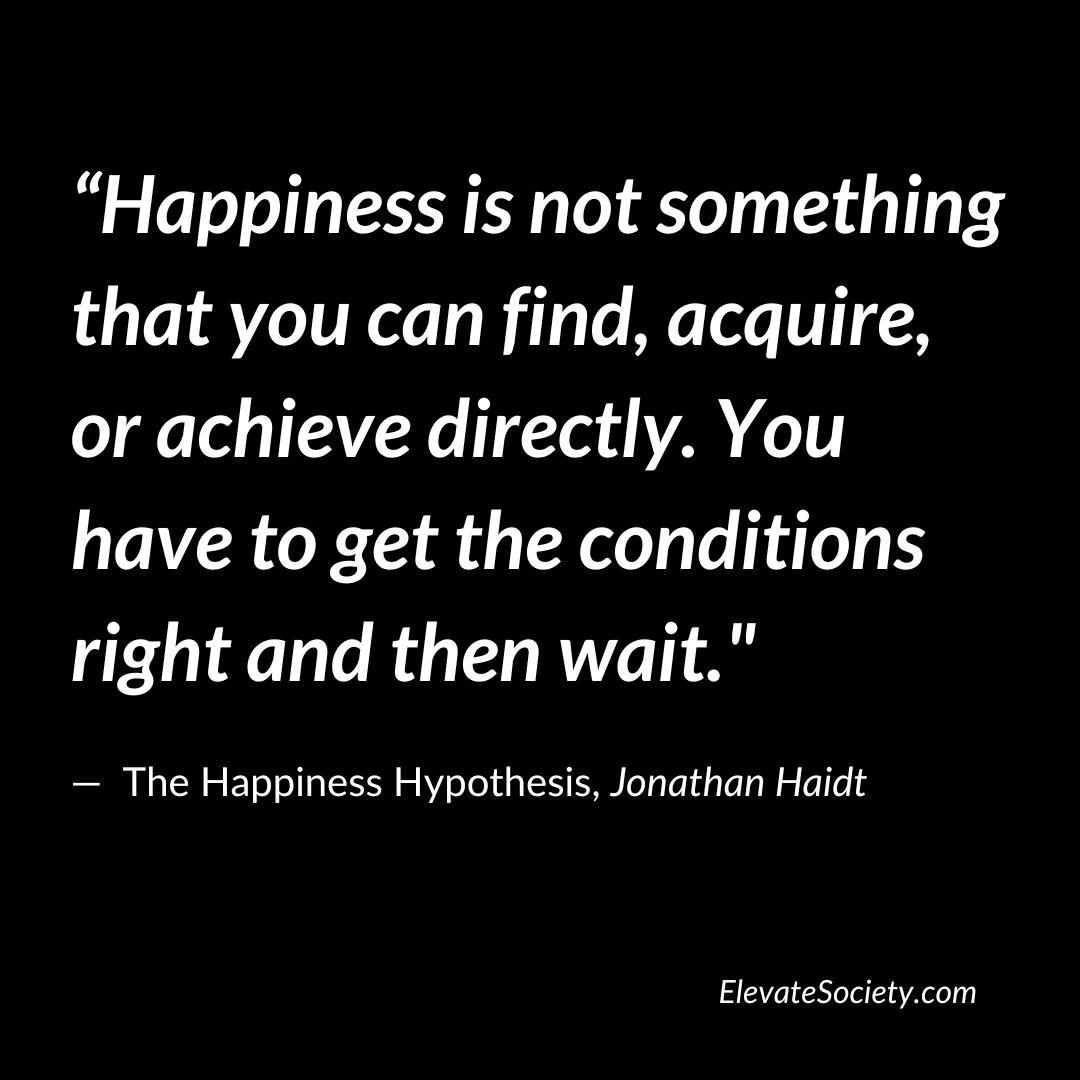22 Top Quotes From The Happiness Hypothesis
In "The Happiness Hypothesis," Jonathan Haidt, a renowned social psychologist, embarks on a captivating exploration of happiness and the human condition, drawing wisdom from ancient philosophies and contemporary scientific research. Haidt skillfully weaves together insights from Eastern and Western traditions, offering a fresh perspective on what it means to lead a fulfilling life.
Throughout the book, he delves into the complex interplay between the mind and emotions, dissecting topics such as the nature of happiness, the importance of cultivating virtues, and the role of social relationships in our well-being. By examining age-old concepts like the power of meditation, the impact of self-control, and the allure of materialism, Haidt crafts a profound and accessible narrative that leaves readers with a deeper understanding of themselves and the world around them. "The Happiness Hypothesis" is a timeless and thought-provoking read that invites introspection, encouraging readers to seek harmony between ancient wisdom and modern science in their quest for genuine happiness and meaning in life. (The Happiness Hypothesis Summary)
The Happiness Hypothesis Quotes
 [Favorite Quote]: “Happiness is not something that you can find, acquire, or achieve directly. You have to get the conditions right and then wait." (Meaning)
[Favorite Quote]: “Happiness is not something that you can find, acquire, or achieve directly. You have to get the conditions right and then wait." (Meaning)
2. "Work on your strengths, not your weaknesses."
3. “Love and work are to people what water and sunshine are to plants.”
4. "Just as plants need sun, water, and good soil to thrive, people need love, work, and a connection to something larger."
5. "You don’t really have to be good at everything. Life offers so many chances to use one tool instead of another, and often you can use a strength to get around a weakness.”
6. "We get more pleasure from making progress toward our goals than we do from achieving them"
7. “Those who think money can't buy happiness just don't know where to shop.."
8. “Human thinking depends on metaphor. We understand new or complex things in relation to things we already know.”
9. “There is nothing either good or bad, but thinking makes it so.”
10. “Idealism easily becomes dangerous because it brings with it, almost inevitably, the belief that the ends justify the means. "
11. “Letting off steam makes people angrier, not calmer. "
12. “We've all heard that what doesn't kill us makes us stronger, but that is a dangerous oversimplification. Many of the things that don't kill you can damage you for life.”
13. Adversity may be necessary for growth because it forces you to stop speeding along the road of life, allowing you to notice the paths that were branching off all along, and to think about where you really want to end up.”
14. "Activities connect us to others; objects often separate us."
15. “It is not clear that married people are, on average, happier than those who never married, because unhappily married people are the least happy group of all and they pull down the average.”
16. “Gossip is a policeman and a teacher. Without it, there would be chaos and ignorance.”
17. "You should learn the terrain, pick a direction, find some good traveling companions, and enjoy the trip, because there may be nothing at the end of the road.”
18. "To cut off all attachments, to shun the pleasures of sensuality and triumph in an effort to escape the pains of loss and defeat—this now strikes me as an inappropriate response to the inevitable presence of some suffering in every life.”
19. "If the metaphor for passionate love is fire, the metaphor for companionate love is vines growing, intertwining, and gradually binding two people together.”
20. “Variety is the spice of life because it is the natural enemy of adaptation.”
21. “We assume that there is one person in each body, but in some ways we are each more like a committee whose members have been thrown together to do a job, but who often find themselves working at cross purposes.”
22. “The wise man chooses not the greatest quantity of food but the most tasty.”
― Quotes from the book The Happiness Hypothesis by Jonathan Haidt
Who is the Author of The Happiness Hypothesis?
Jonathan Haidt, a prominent social psychologist and author, has become renowned for his insightful work on human morality and the psychological underpinnings of political and social divisions. In his influential book "The Righteous Mind," Haidt delves into the evolutionary origins of moral beliefs and how they shape our behavior and political ideologies. He argues that understanding the moral foundations of different groups can bridge the gap between conflicting viewpoints and foster more constructive dialogues. Haidt's research helps us comprehend the tribal nature of human societies and provides a framework for cultivating empathy and tolerance towards differing perspectives. By appreciating the diverse moral landscapes that shape our world, we can strive for a more compassionate and interconnected society.
Chief Editor
 Tal Gur is an author, founder, and impact-driven entrepreneur at heart. After trading his daily grind for a life of his own daring design, he spent a decade pursuing 100 major life goals around the globe. His journey and most recent book, The Art of Fully Living, has led him to found Elevate Society.
Tal Gur is an author, founder, and impact-driven entrepreneur at heart. After trading his daily grind for a life of his own daring design, he spent a decade pursuing 100 major life goals around the globe. His journey and most recent book, The Art of Fully Living, has led him to found Elevate Society.





















